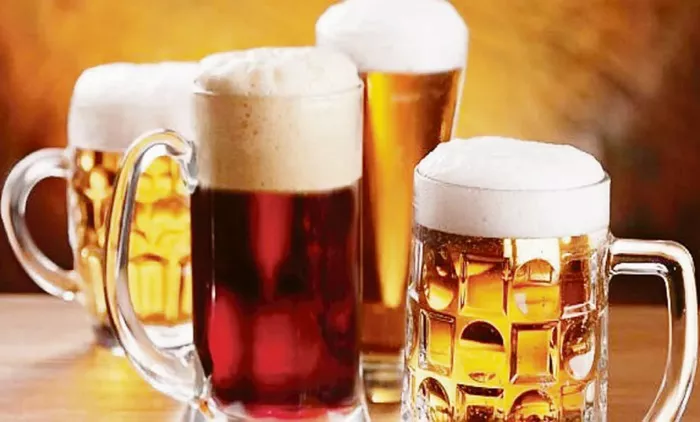The growing burden of excise taxes on the beer industry is raising concerns about its impact on small businesses, restaurants, and the broader liquor trade in South Africa. In a special edition of Moneyweb@Midday, industry experts discussed the economic and social consequences of escalating taxes, calling for more predictable policies and better government engagement.
Host Jeremy Maggs spoke with three influential industry figures: Naadirah Grimsel-Gradwell, regulatory and public policy director at South African Breweries (SAB); Wendy Alberts, CEO of the Restaurant Association of South Africa; and Lucky Ntimane, convenor of the National Liquor Traders Council.
Key Discussion Points:
Rising Excise Taxes and the Beer Industry’s Strain
The beer industry plays a vital role in South Africa’s economy, contributing R96 billion to the GDP and supporting around 210,000 jobs. However, escalating excise taxes have put its sustainability at risk. Over the last six years, excise tax rates have increased above inflation, driving up the price of beer and reducing affordability for consumers.
According to Grimsel-Gradwell, excise duties on beer, which should make up around 23% of the retail price, have surged to 38%. Of that, 25% is tax. This growing tax burden threatens the viability of the sector and puts economic pressures on both producers and consumers.
Impact on Small Liquor Businesses and Illicit Alcohol Trade
Small liquor traders, particularly in informal markets and townships, are struggling with the rising costs of legal alcohol. The higher taxes are pushing many consumers towards illicit and counterfeit alcohol, a market now worth R20 billion. Ntimane highlighted that for tavern owners, who operate in a precarious financial environment, the rise in legal alcohol prices has led to a surge in demand for cheaper, illegal alternatives.
“Illicit alcohol manufacturers are so sophisticated that even the original producers sometimes can’t tell the difference,” Ntimane said.
Challenges Facing Restaurants and the Hospitality Sector
The restaurant industry, which already faces high overheads, is feeling the strain of increased taxes, rising supplier costs, rent hikes, and electricity price increases. Beer, which accounts for up to 70% of beverage sales in many restaurants, is now becoming unaffordable for customers, threatening the survival of small eateries.
“Without support and predictable tax policies, many restaurants will close, resulting in job losses and economic decline,” said Alberts, urging for more government consultation on tax policies that directly impact the sector.
Frustration with Government Engagement
Despite numerous attempts to engage with policymakers, industry leaders feel that their concerns are being ignored. There has been little transparency or consultation regarding tax policy changes, leaving businesses unable to plan effectively. Both Grimsel-Gradwell and Ntimane emphasized the need for more predictable and consistent tax policies to help businesses manage their operations and sustain employment.
“We’ve been knocking on a non-existent door for years,” Ntimane remarked. Grimsel-Gradwell added that the focus should be on protecting the legal tax base, which is increasingly at risk as legal alcohol becomes more expensive than its illicit counterparts.
Policy Recommendations for a Sustainable Future
Industry leaders are calling on National Treasury to align excise tax increases with inflation to ensure a more sustainable future for the beer industry and associated businesses. They point to models used by countries like Canada and Tanzania, which adjust taxes based on economic conditions and inflation forecasts, offering more stability for businesses.
“If the excise tax proposals go through, Treasury may collect R4.6 billion in the short term, but the long-term damage could result in a R6.7 billion loss to the economy,” Ntimane warned.
Alberts emphasized the importance of creating a predictable tax framework that would support small businesses and help maintain jobs in the restaurant industry, which is one of the largest contributors to South Africa’s GDP.
Conclusion
The increasing excise tax burden on the beer and alcohol industries is not only straining businesses but is also contributing to the expansion of the illicit alcohol market. Industry leaders are urging the government to adopt a more predictable and sustainable tax framework to balance public health goals with economic stability. Without such reforms, the negative consequences for the economy, employment, and public health will continue to grow.
You Might Be Interested In:


